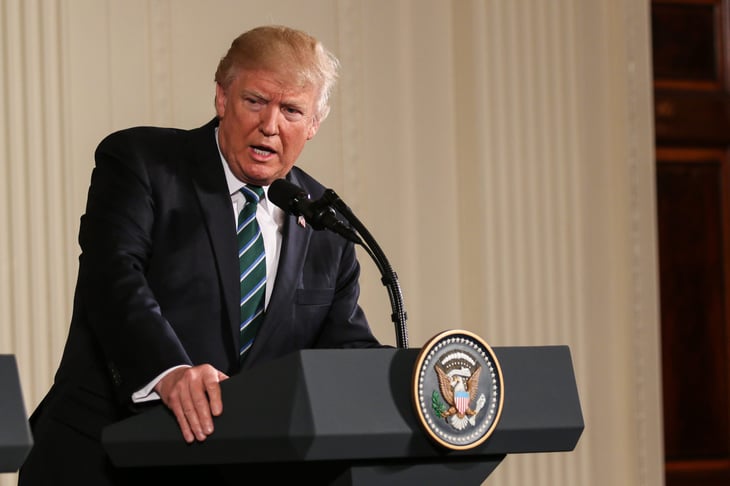
Following weeks of impasse in Congress over continuing coronavirus-related financial aid, President Donald Trump took several executive actions on Saturday.
The three new executive memoranda and a new executive order issued over the weekend cover a variety of relief measures, including continuing — but reducing — enhanced unemployment benefits.
But confusion remains about the timing and shape of this coronavirus relief — including about whether the president’s moves were legal.
Here’s a quick look at each new executive action, and what it could mean for you.
Continuing unemployment benefits

“I’m taking action to provide an additional or an extra $400 per week in expanded benefits,” Trump said at a press briefing about the executive actions.
This is down from the $600-per-week in expanded benefits made available by Congress in the Coronavirus Aid, Relief, and Economic Security Act, better known as the CARES Act. Those temporary benefits lapsed at the end of July.
It’s not clear where specifically this money will come from, but states are expected to pick up 25% of the tab: The executive memorandum approves “a lost wages assistance program that authorizes the Governor to provide a $400 payment per week, which shall reflect a $300 Federal contribution.”
The memo does not say when unemployed Americans should expect any money from the program. It says the program will run until early December, or until funding runs out — whichever comes first.
Housing assistance

The CARES Act also contained expiring provisions for mortgage relief and to prevent landlords from evicting tenants who temporarily couldn’t afford their rent.
Trump’s executive order on COVID-19 housing assistance directs federal agencies to “consider whether any measures temporarily halting residential evictions of any tenants for failure to pay rent are reasonably necessary to prevent the further spread of COVID-19 from one State or possession into any other State or possession.”
It also directs the federal government to “identify any and all available Federal funds to provide temporary financial assistance to renters and homeowners who, as a result of the financial hardships caused by COVID-19, are struggling to meet their monthly rental or mortgage obligations.”
The order does not provide any new funding. Instead, it instructs federal departments to figure out if they can do anything else to help without congressional action.
A payroll tax deferment

Another of Trump’s new executive memorandums calls for the Treasury Department to defer payroll taxes from September through December for people whose pay “during any bi-weekly pay period generally is less than $4,000, calculated on a pre-tax basis.”
This amounts to a temporary tax break for people making less than $104,000.
The break may be worth as much as $1,220 in total for someone making $64,000 a year before taxes, according to estimates. But without an actual change in tax law — which would require congressional action — those taxes will still be due later.
A break on student loan payments

The final executive memorandum of the set covers student loans, and may have the most clear-cut effect because it does not require any new funding. The memo orders the Education Department to extend the federal student loan relief outlined in the CARES Act until the end of 2020.
That means federal student loan borrowers would not need to make payments or worry about accruing interest until then, although they are free to make payments if they wish. Private loans are unaffected.





Add a Comment
Our Policy: We welcome relevant and respectful comments in order to foster healthy and informative discussions. All other comments may be removed. Comments with links are automatically held for moderation.